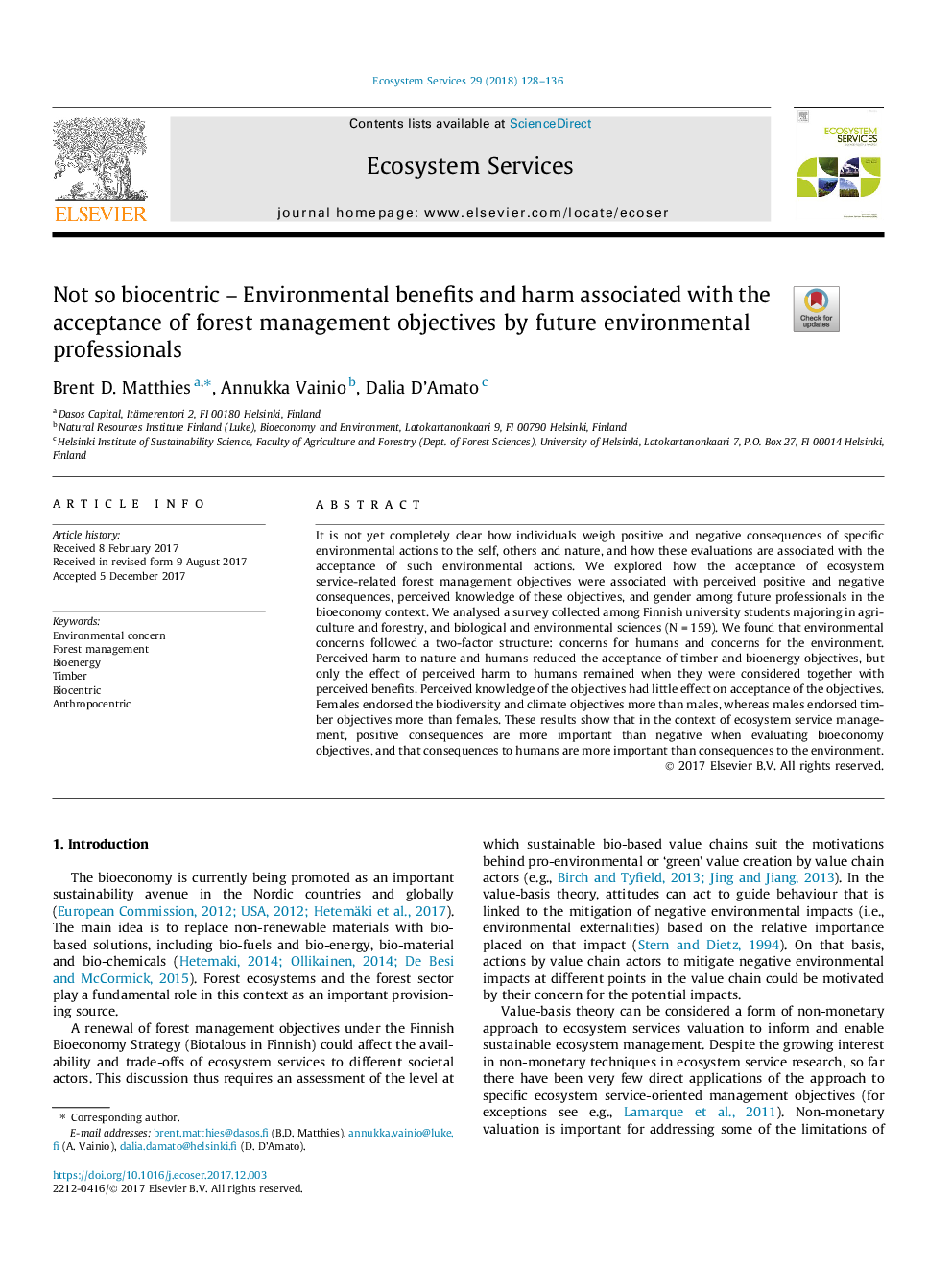| Article ID | Journal | Published Year | Pages | File Type |
|---|---|---|---|---|
| 6556474 | Ecosystem Services | 2018 | 9 Pages |
Abstract
It is not yet completely clear how individuals weigh positive and negative consequences of specific environmental actions to the self, others and nature, and how these evaluations are associated with the acceptance of such environmental actions. We explored how the acceptance of ecosystem service-related forest management objectives were associated with perceived positive and negative consequences, perceived knowledge of these objectives, and gender among future professionals in the bioeconomy context. We analysed a survey collected among Finnish university students majoring in agriculture and forestry, and biological and environmental sciences (Nâ¯=â¯159). We found that environmental concerns followed a two-factor structure: concerns for humans and concerns for the environment. Perceived harm to nature and humans reduced the acceptance of timber and bioenergy objectives, but only the effect of perceived harm to humans remained when they were considered together with perceived benefits. Perceived knowledge of the objectives had little effect on acceptance of the objectives. Females endorsed the biodiversity and climate objectives more than males, whereas males endorsed timber objectives more than females. These results show that in the context of ecosystem service management, positive consequences are more important than negative when evaluating bioeconomy objectives, and that consequences to humans are more important than consequences to the environment.
Related Topics
Life Sciences
Agricultural and Biological Sciences
Agricultural and Biological Sciences (General)
Authors
Brent D. Matthies, Annukka Vainio, Dalia D'Amato,
